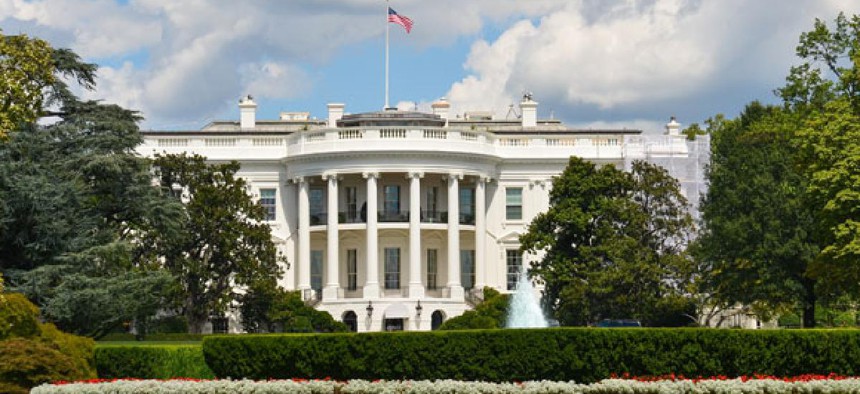
Orhan Cam/Shutterstock.com
Analysis: Obama Is Raising the Pressure for a Budget Deal
President's fiscal 2014 budget will test whether the GOP's antitax rhetoric is bluster or a deal-killing fact.
Washington is edging closer to a budget deal, thanks to a gutsy change in strategy at the White House. Next week, President Obama will propose specific cuts to Social Security and Medicare in his annual budget, according to senior White House officials.
That will put the onus on House Speaker John Boehner to show some leadership, too. He needs to push Republicans toward accepting tax increases beyond the $600 billion approved in December.
It can be done.
As I reported last month, Washington’s biggest myth is that a budget deal is out of reach because of the Republican Party’s no-compromise stance. Don’t believe GOP leaders when they say “no more taxes.” It’s posturing.
In fact, senior House Republicans tell me they are open to exchanging entitlement reform for new taxes -- $250 billion to $300 billion, or approximately the amount that Republican Sen. Pat Toomey of Pennsylvania proposed raising over 10 years under the guise of “tax reform.”
That may not be enough new revenue to satisfy Obama, but it’s a start.
What is the GOP’s political incentive to deal?
First, getting the signature of a Democratic president on a bill reducing entitlements would be a victory for a generation’s worth of Republican candidates. Casting GOP politicians as Granny-bashers would be harder to do after a Democratic White House tweaks Medicare and Social Security.
Second, even token reforms by Obama in 2013, opens the door to deeper entitlement changes in the future.
Finally, while most GOP House members are virtually immune to electoral pressure because they face easy reelection campaigns, Republican Party leaders want them to broker a fair deal with Obama that helps the party's horrible image problem.
Why does Obama want a deal? He needs fiscal peace to stop his slide in polls, which suggests that voters blame both parties for dysfunction in Washington. After winning reelection, overconfident White House aides assumed that Obama was immune from fallout.
Persistent budget fights also threaten the president’s domestic agenda, including immigration, gun safety and climate change, according to Democratic operatives inside and outside the White House.
It helps that liberal commentators, who for months cheered the White House’s no-surrender stance with House Republicans, are now signaling retreat or retrenchment. The White House and its allies badly misjudged the political and fiscal impact of “sequestration” spending cuts. Some now believe a comprehensive deal that eases sequestration’s impact would be better than the status quo.
Beside the political incentives, leaders of both parties acknowledge the existential need to tame the federal deficit, which is expected to equal 5.5 percent of the size of the economy this year, as measured by the gross domestic product. Obama’s plan, coupled with deficit reductions imposed since 2010, would reduce the deficit to 1.7 percent by 2023, the White House says.
I reported all this on March 21 (“Debunking 2 Myths: GOP Won’t Raise Taxes and Budget Deal is Dead”), not knowing which of two paths Obama could take. He could abandon hopes of a deal and spend four years blaming Republicans for his failed agenda. Or he could call the GOP’s bluff, risk some political capital and lead. To his credit, it looks like Obama will take the less-traveled path.
In addition to requesting more revenue, Obama’s budget will propose a change in the inflation formula to effectively reduce cost-of-living payments for Social Security benefits, according to a New York Times story confirmed by White House officials on condition of anonymity. There would be protections for low-income and elderly beneficiaries.
On Medicare, Obama would reduce payments to health care providers and require higher payments from wealthy beneficiaries.
That may not be enough cuts to satisfy the GOP, but it's a start. It's also certain to draw criticism from liberal allies who are too quick to accuse Obama of capitulating to Republicans.
Appealing to his liberal base, Obama’s budget includes new spending for policies such as prekindergarten education, offset by raising federal taxes on cigarettes and other tobacco products.
His budget will come out the same day he dines with Senate Republicans, the latest in a round of talks aimed at forging a reluctant partnership for the sake of the country.
(Image via Orhan Cam/Shutterstock.com)
NEXT STORY: The 10 Most Common Jobs in Government







